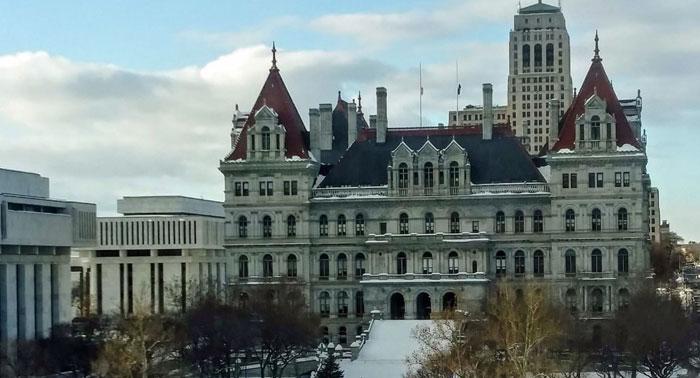ALBANY- State Senator Pete Harckham announced that he has introduced new legislation to create a Climate and Community Protection Fund that will finance the work of implementing the climate, jobs, and justice provisions of the Climate Leadership and Community Protection Act (CLCPA) passed by the New York State Legislature and enacted in 2019.
Harckham’s bill (S.5360) grants legislative oversight for the manner in which funds are appropriated to implement these CLCPA provisions, and would establish four accounts.
- Climate, Jobs, and Infrastructure Account: directs funding to programs for increasing building efficiency, updating our energy infrastructure and expanding public transit upstate and on Long Island;
- Community-Directed Climate Solutions Account: directs grants to community organizations for grassroots-led energy planning and reducing local emissions;
- Community and Worker Transition Assistance Account: funds programs providing direct support to job training for impacted workers, funds to replace lost tax revenue for municipalities and school districts, as well as expanded economic development programs;
- Energy Affordability Account: directs funding to rebate programs alongside additional measures to assist low and moderate-income families and small businesses to reduce the burden of energy costs while lowering emissions.
The bill also directs the New York State Energy Research Authority to establish an Office of Equity for Energy and Environment to administer grants, and that at least three-quarters of funding supports projects located within disadvantaged communities.
Harckham’s office says that the bill is modeled after the state’s successful Environmental Protection Fund, which was first created by the state legislature in 1993.
“The revenues from any Cap and Invest plan need to be directed toward meaningful and equitable climate and community programs rather than just sent to the state’s General Fund,” said Harckham. “We need a strong commitment to transitioning the state’s economy to clean energy, growing new union jobs and restoring environmental justice to disadvantaged communities.”
The bill also implements labor standards such as prevailing wage requirements, buy U.S. procurement standards, and protection of benefits, wages, and collective bargaining power. Harckham added, “All of this is going to require both a significant investment as well as a strong, transparent, fair, and community-focused spending plan.”







